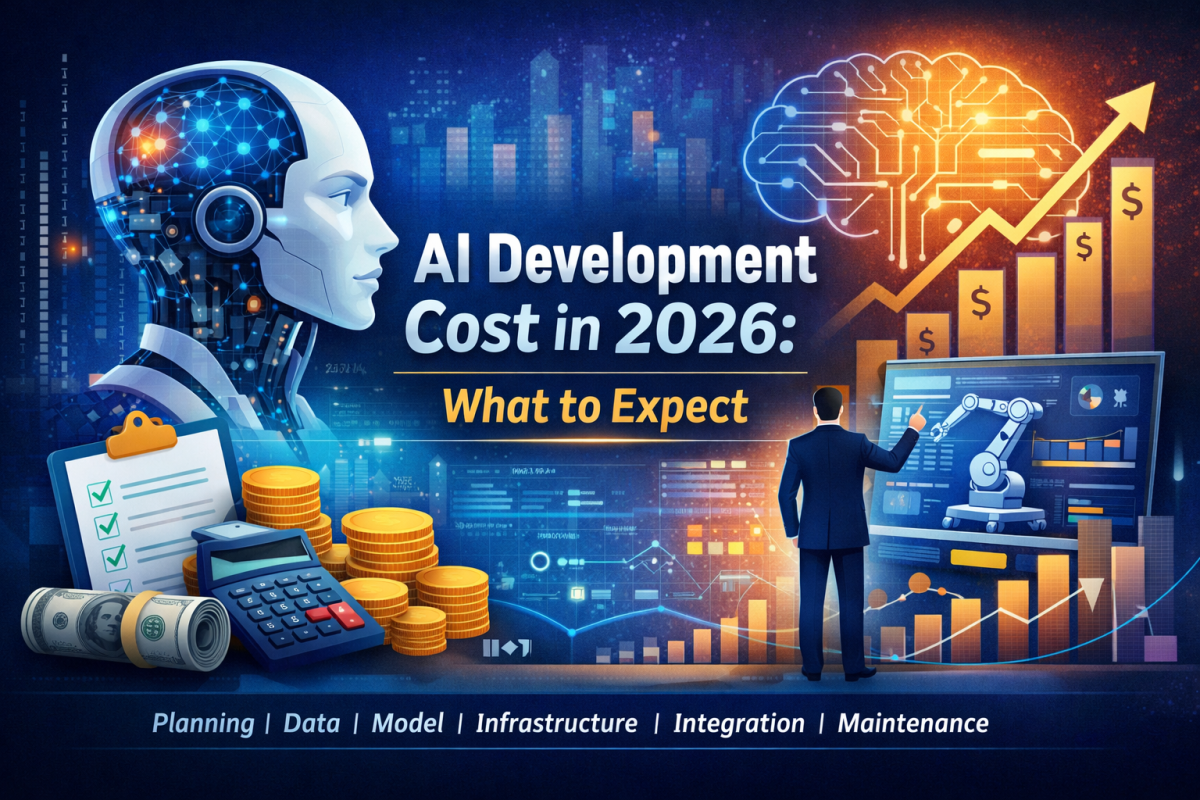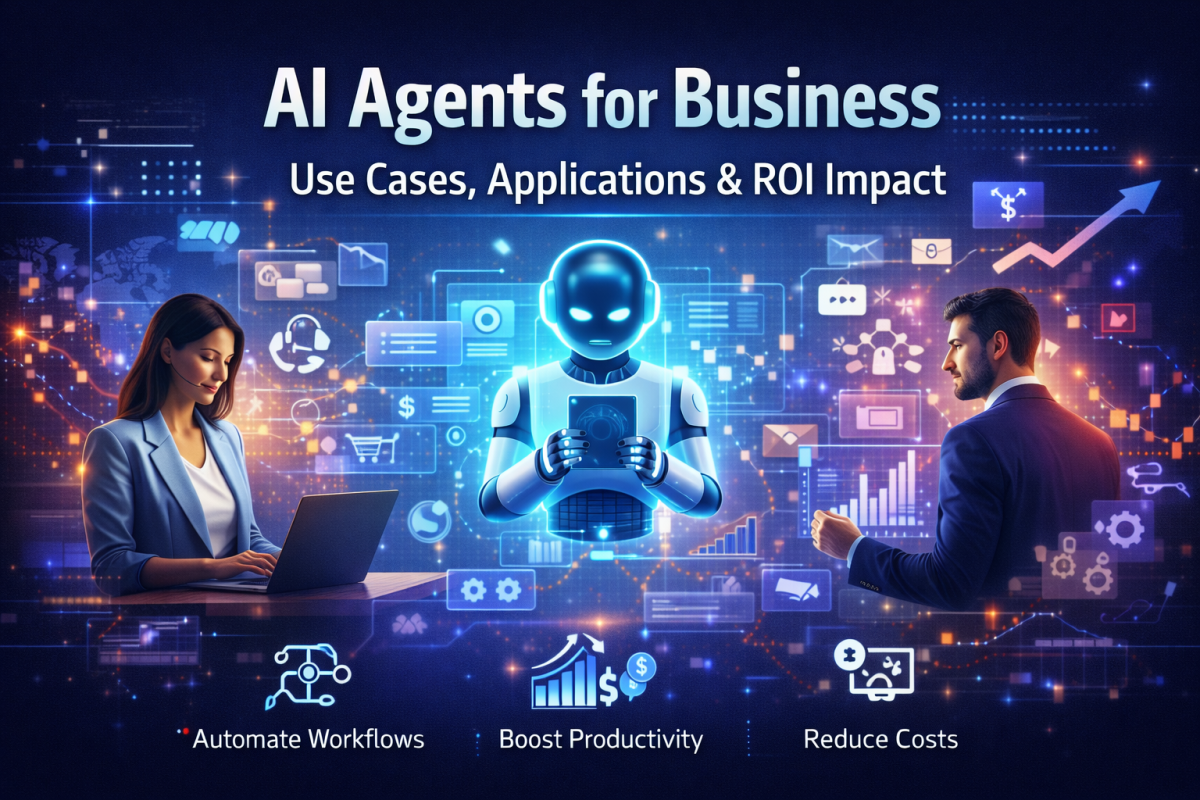If you work in finance today, you already know how quickly expectations keep rising. Teams want faster reporting. Stakeholders expect sharper insights. Customers look for smooth digital journeys.
And surely you might be asking a question: How do modern finance leaders stay ahead without adding unnecessary pressure on their teams?
The answer is adapting to digital transformation in finance. It gives finance teams the structure, clarity, and automation they need to operate with speed and accuracy. When used correctly, it raises productivity, reduces errors, and creates room for strategic thinking instead of repetitive tasks.
In this detailed guide, you’ll walk through digital transformation in finance, including benefits, technologies, use cases, and challenges. You will also see how it impacts corporate finance, accounting, fintech, banking, capital markets, auto finance, asset finance, and construction finance.
Let’s start with the foundation, so everything that follows feels clear and easy to apply.
What Does Digital Transformation in Finance Actually Mean?
Many teams ask the same basic question. What is digital transformation in finance?
The simple answer is this. It is a shift from manual work toward automated and intelligence-driven systems that support accounting, reporting, payments, credit checks, asset finance tracking, corporate finance decisions, and more.
This improvement touches multiple areas, including,
- It strengthens digital transformation in financial services.
- It supports digital transformation in banking and finance.
- It helps with digital transformation in finance and accounting.
- It aligns operational work for digital transformation in finance function teams.
When finance teams switch from scattered tools to connected systems, they gain accuracy, speed, and a full view of their financial position.
Why Do Finance Teams Need Digital Transformation?
If you are responsible for financial decisions or financial reporting, you already know the common hurdles. Manual reconciliation slows your closing cycles. Legacy tools limit visibility. Data scattered across many platforms increases the chance of delays and errors. Compliance work grows every month.
These issues are the core of the challenges of digital transformation in finance. Finance teams want accuracy, speed, and clarity. They also want models that update based on real activity. Most importantly, they want better predictions that help them plan ahead.
Digital transformation in finance industry segments helps you fix,
- long reporting cycles
- growing compliance load
- slow approval processes
- weak data visibility
- customer experience gaps
This applies to corporate finance, asset finance, banking, insurance, lending, fintech, investment banking, and capital markets.
Top Benefits of Digital Transformation in Finance
If you are evaluating digital transformation for financial services or digital transformation for banking, these benefits will help you understand the deeper impact.
1. Stronger Decision Making with Real-Time Data
When you use automated processing with analytics, you get cleaner data across financial models, forecasting, budgeting, treasury views, and corporate finance planning.
AI in corporate finance digital transformation helps you predict trends, detect risks early, and support CFO-level strategy.
2. Higher Accuracy Across Accounting and Finance
Digital transformation in accounting and finance helps reduce mistakes in reconciliation, revenue recognition, and cost allocation. With automated checks and integrated platforms, your reports remain consistent and audit-friendly.
3. Faster Workflows Across Core Finance Operations
Teams save time through,
- Automated invoice handling
- Digital processing for approvals
- Faster month-end closure
- Improved receivables management
- Controlled payables workflow
This supports digital transformation in finance function teams that handle daily operations.
4. Improved Customer Experience for Financial Institutions
Whether you manage digital transformation in asset finance, auto finance, corporate lending, wealth management, or fintech, customers expect quick responses. Automation shortens onboarding, credit checks, loan processing, payment updates, and service requests.
Technologies Driving Digital Transformation in Finance
The transformation is powered by a group of technologies that bring structure to your financial operations.
1. Artificial Intelligence and Machine Learning
These help with,
- Risk modeling
- Cash flow forecasting
- Credit scoring
- Fraud detection
- Chat support automation
All of these support modern digital transformation in banking industry and digital transformation in financial services.
2. Automation and RPA
Repetitive tasks turn into automated flows. Invoice extraction, data entry, reconciliation, and internal reviews move quickly. This works well for digital transformation in finance and accounting teams.
3. Cloud-Based Finance Platforms
Cloud ERPs, cloud ledgers, and cloud banking tools give your team shared access to financial data. You can track spending, income, payments, and statements without delays.
4. Blockchain and Smart Contract Usage
Blockchain improves transaction trust and settlement clarity. It supports investment firms, capital markets, and trade finance institutions.
5. Financial Analytics and Predictive Models
Data transforms into insights for CFOs, controllers, and analysts. Capital planning becomes more accurate. Treasury predictions improve. Scenario planning becomes simpler.
These technologies push digital transformation in capital markets and digital transformation in investment banking forward.
Use Cases Across Banking, Fintech, Accounting, Asset Finance, and More
Digital transformation touches almost every financial segment. Here are real use cases based on the areas you serve.
Banking and Financial Services
Banks use automated onboarding, digital KYC, online lending tools, credit decision engines, automated payment checks, and customer service chat systems.
This supports digital transformation examples in banking and digital transformation in banking industry.
Corporate Finance Teams
Corporate finance professionals handle forecasting, budget control, operational cost tracking, investment planning, and risk evaluation. Automation helps them complete these tasks with more clarity.
Fintech
Fintech companies use automation for real-time payments, customer scoring, robo-advisory support, lending models, and compliance tracking.
This connects strongly with digital transformation in fintech.
Accounting and Finance Operations
Accounting teams gain better control with automated reconciliation, expense checks, revenue reporting, and tax compliance workflows.
Asset Finance
Digital transformation in asset finance helps with contract processing, asset tracking, credit scoring, fleet finance decisions, and repayment management.
Auto Finance
Digital transformation in auto finance supports instant credit decisions, digital agreements, loan servicing updates, and risk monitoring.
Construction Finance
Digital transformation in construction finance helps lenders and builders track spend flow, project billing, draw management, and real-time updates.
Capital Markets and Investment Banking
Digital transformation in capital markets supports automated trade checks, algorithmic decision support, risk scanning, and settlement processes.
Digital transformation in investment banking helps analysts and advisors work with cleaner models, faster evaluations, and smoother execution.
Barriers and Challenges of Digital Transformation in Finance
Financial teams often come across obstacles such as,
Challenge 1: Outdated Systems
Many finance teams still rely on old tools that do not connect with modern platforms. This creates slow turnarounds, repeated checks, and unnecessary manual work. When systems cannot communicate with each other, even simple tasks take longer than they should.
Challenge 2: Scattered Data
Data stored across multiple tools affects reporting accuracy and slows decision-making. Teams spend long hours pulling files, matching numbers, and verifying entries instead of focusing on insights that matter.
Challenge 3: Rising Security Expectations
Every year brings tougher requirements around access control, audits, encryption, and monitoring. Finance teams must stay ahead of threats while keeping operations running without interruptions.
Challenge 4: Staff Training Gaps
Introducing advanced finance tools is useful only when teams know how to use them. Many organizations face slow adoption because staff members need time, guidance, regular sessions, and hands-on practice to feel confident.
Challenge 5: Multi-Region Compliance
Companies handling finance across several countries must deal with varied reporting rules, tax structures, and documentation standards. This adds complexity to every upgrade.
Challenge 6: Slow Transition from Legacy Processes
Even with the right tools, older approval flows and outdated documentation habits slow down the shift. These barriers appear widely across institutions and require a structured plan to fix.
These challenges of digital transformation in finance are common across global institutions.
How a Digital Transformation Consultancy Supports Finance Leaders?
Digital transformation in finance consultancy gives finance leaders a clear path by turning broad goals into practical, step-by-step actions. Instead of dealing with scattered tools, unclear priorities, or long migration delays, you get structured guidance that helps your team move with confidence.
The focus stays on strengthening reporting, reducing repetitive work, organizing data, and giving finance teams systems that work together without confusion. This type of support helps you avoid common mistakes and move forward with a plan that feels realistic for your organization.
Support typically includes,
- Assessment of current tools, processes, and reporting structures
- A clear improvement plan with milestones that finance teams can follow
- Technology selection aligned with the finance function needs
- Integration support and change management during the transition period
- Training sessions to help your company’s team adapt to new systems
- Continuous tracking and improvement to keep your finance setup stable and consistent
This approach gives financial institutions a grounded path as they move through digital financial transformation.
Future of Digital Transformation in Finance
Expect finance to move toward,
- AI-assisted finance teams
- Autonomous accounting flows
- Real-time compliance checks
- Smart contract-based settlements
- Advanced analytics for capital decisions
These trends will reshape financial services, banking, accounting, fintech, and corporate finance in the coming years.
Strengthen Your Financial Operations with a Clear Digital Transformation Roadmap from Vrinsoft
If your finance team is aiming for sharper visibility, faster processes, and dependable systems, the real question is simple: Which steps will actually move your organization forward? Many companies get stuck not because of a lack of intent, but because they do not have a structured direction that turns plans into steady progress.
Vrinsoft Technology helps remove that confusion. With more than 15 years of experience, thousands of completed projects, and a long list of global clients, our team brings practical methods that support finance leaders across banking, accounting, corporate finance, asset finance, and fintech. We focus on real results: stronger workflows, organized data, better reporting flow, and smoother collaboration across departments.
As a leading digital transformation company in the US, we offer strategies shaped by research, real-world delivery, and consistent execution across finance domains.
You can review detailed case studies, portfolio highlights, and project examples to understand how our approach supports long-term stability.
Visit our profiles on Behance and Dribble to see how Vrinsoft can strengthen the next stage of your digital journey.










